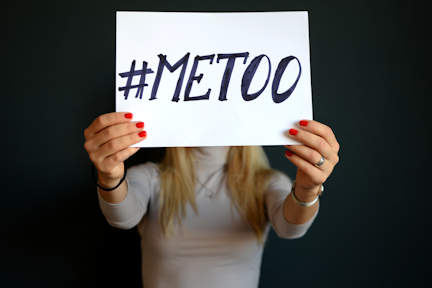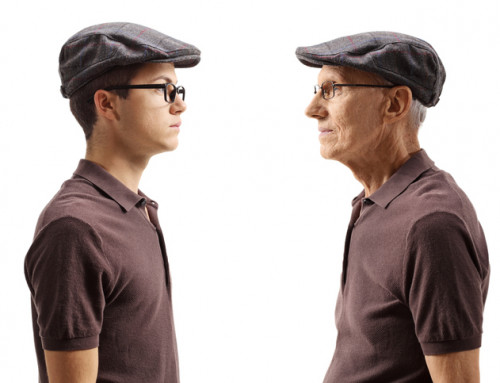The #MeToo campaign – the act of victims of sexual abuse sharing their experience publicly, through social media or news media – is a positive step towards bringing about institutional and cultural change that enables this kind of behaviour to happen. But it’s not a new story, many have been dealing with this for a long time. And for those that have been living this truth for a while, they’re not obliged to confess and tell the details of their experiences. They don’t have to be the ones to educate. They shouldn’t be expected to be told the details of their negative experience for others to believe the extent of the issue.
For many victims of sexual abuse, they’ve been living with these horrible experiences for a long time and some may even have been dealing with it in their own way; seeking professional therapy, talking to friends and family or through self-led therapeutic exploration. There’s no doubt that revealing the abuse of powerful figures, such as Harvey Weinstein, can challenge corruption in industries and reflect the twisted culture in our society that enables these kinds of things to happen. But we have to consider the victims. But encouraging victims to come forward and publicly reveal the details of their experience, we’re asking them to lead a conversation that they may already be wary of from years of living through the real situation. I’ve no doubt that some people may benefit this public reveal of their experiences and it may help them deal with their trauma. But for many, it comes with a lot of anxiety, unwanted comments and longer-term consequences facing their wider social network after sharing their most personal, intimate details. Talking about your trauma can cause you to re-live your trauma, so why should we be putting the pressure on people to do this?
It is a conversation that we need to have and I think it can be the first steps to making a positive change happen, whether on an individual or wider society level. But we need to host the conversation somewhere else. When will it shift from talking about the victim’s experiences to talking about how a problem like this came to exist in the first place and looking at what systems and cultures we have in place that can enable this abuse on such a huge level, or even, at all. When can we focus on what needs to change and how, rather than making victims re-live their trauma, whether through direct discussion or being unable to choose when to hear the discussion of others traumatic experiences? This #MeToo campaign is huge and is unavoidable if you’re on social media or engage with the news. Going through a process of healing from any kind of trauma has to be a personal journey that is ultimately led by the individual. Sharing experiences publicly can be a step in the healing process, so can listening to others experiences, but only when that individual is ready.
So, how can we talk about sexual abuse in a healthy way, without adding to the trauma of victims? If you know someone who’s been through these experiences, or want to be able to have a supportive reaction to acquaintances and your wider network who may be discussing these difficult topics, here are some ways you can help without hindering.
What can you do to help people talk about sexual abuse in a healthy way?
Note: These are suggestions of how to support others who have been through this experience from a human, personal level, and not an alternative to someone seeking professional help if they feel they need it.
Note: The following suggestions are references how to have a healthier, public conversation about sexual abuse, but they can be applied to personal, individual relationships if you want to support someone who’s been through trauma.
- Listen. Listen first without jumping into the conversation. Actively listen. Say ‘I’m here to hear what you have to say’ and listen without judgment, interrupting, or making self-referencing comments.
- Believe. Don’t suggest ways in which the person may have misinterpreted the situation or reacted differently. It’s not helpful. Don’t try to talk them out of their reactions or minimise the event. If someone felt traumatised, it’s trauma.
- Don’t expect the details, they don’t always help. Reliving an account of what happened can be a form of personal therapy, but that’s just it, it’s personal. It shouldn’t have to happen publicly for the conversation to develop.
- Where necessary, offer encouragement to seek professional help and get well. Particularly pertinent during the reaction to many celebrities abusive behaviour being exposed in the media, for many people joining the #metoo campaign it may be the first time they’ve talked about their experience to anyone. It could be the first step on their journey towards healing, and professional help could be the next step.
- Offer emotional support where you can. Everyone needs a shoulder to cry on or lean on. Simply offer that option of support, it’s up to them if they choose to utilise it.
- In terms of the wider public conversation about sexual abuse, ask the right questions to keep the conversation active and moving in a healthy direction to spark change. How can you make a change? How can we not only begin to heal but also change our systems and culture to stop this from happening to anyone else? What practical steps can we begin to take? Move the conversation towards positive actions for change. Some people may be finding the public discussions of abuse traumatic and may benefit from the conversation moving away from the details of reliving the trauma and towards practical steps for healing.
Healing is individual, personal and takes time. Not everyone can begin to heal with this public conversation. I stand in solidarity with the people who choose to share their experiences. They’re brave, strong and resilient and have made the choice to take a step towards personal healing.
But now is the time to move the conversation forwards and look at the steps we all can be taking to support victims and prevent further abuse.
Visit ReThink for more information about how to help someone if you’re worried.
Need a rest after such an intense topic? Read this post on developing mindful training.
References:
https://www.goodtherapy.org/blog/supporting-someone-through-trauma-four-important-tools-0620144
https://www.psychguides.com/guides/how-to-find-help-treating-a-trauma-related-problem/







Leave A Comment